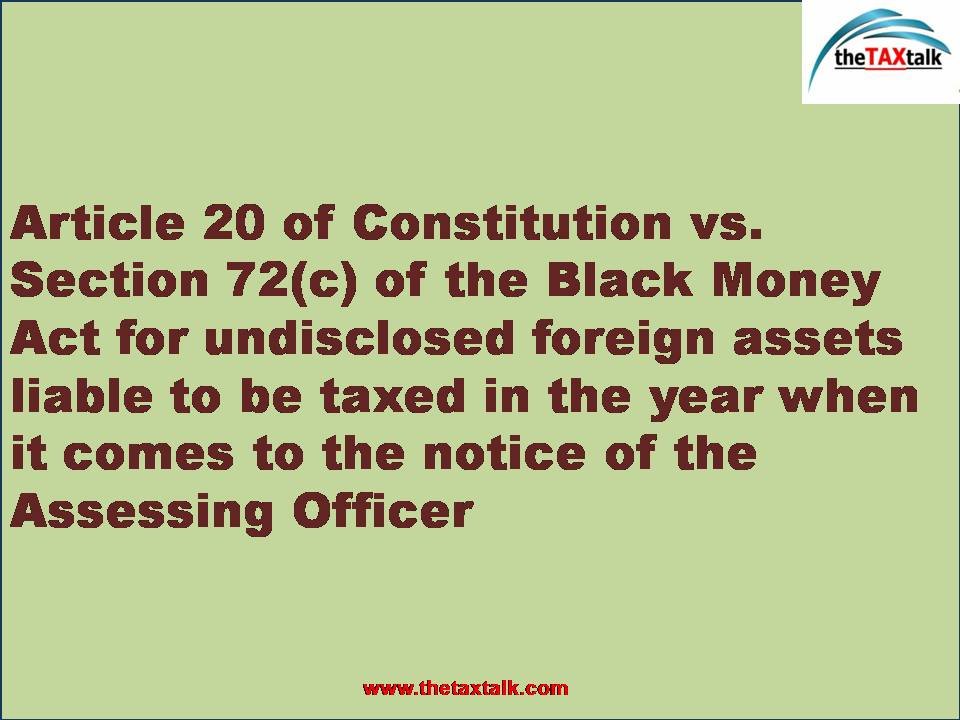![]()
Article 20 of Constitution vs. Section 72(c) of the Black Money Act for undisclosed foreign assets liable to be taxed in the year when it comes to the notice of the Assessing Officer
|
Article 20 provides that no person shall be convicted of any offence except for violation of a law in force at the time of the commission of the Act charged as an offence.
The Article 20 in The Constitution Of India 1949 reads as under:
20. Protection in respect of conviction for offences (1) No person shall be convicted of any offence except for violation of the law in force at the time of the commission of the act charged as an offence, nor be subjected to a penalty greater than that which might have been inflicted under the law in force at the time of the commission of the offence
(2) No person shall be prosecuted and punished for the same offence more than once
(3) No person accused of any offence shall be compelled to be a witness against himself
The question arises whether the Black Money Act is at odds with Article 20 of the Constitution as it was applicable even for earlier periods. Section 72(c) of the Black Money Act undisclosed foreign assets are liable to be taxed in the year when it comes to the notice of the Assessing Officer.
Let us have an overview of the issue and the provision:
1. Black Money (Undisclosed Foreign Income and Assets) and Imposition of Tax Act, 2015 (Black Money Act) came into force on 1st April, 2016, with an aim to tax undisclosed foreign income and foreign asset acquired from such undisclosed foreign income and to punish the person indulging in illegitimate means of generating money and causing loss to the revenue.
2. Article 20(1) of the Constitution of India provides that no person shall be convicted of any offence except for violation of a law in force at the time of the commission of the Act charged as an offence. Hon’ble Supreme Court in the case of Rao Shiv Bahadur Singh and Ors. vs. The State of Vindhya Pradesh reported in AIR 1953 SC 394 has held that ex post facto laws which retrospectively create offences and punish them are bad, being highly inequitable and unjust.
3. Section 72(c) of the Black Money Act undisclosed foreign assets are liable to be taxed in the year when it comes to the notice of the Assessing Officer
4. Thus, what Sec 72(c) essentially says is that irrespective of the year of purchase of a foreign asset, it would be taxed when it comes to the notice of the AO. For eg: If Mr X has purchased a villa in a Spanish Island in 2001 but it has come to the notice of the AO in 2021-22, it would be taxed in 2021-22 even though the Black Money Act came into force in 2016.
5. The constitutional validity of the retrospective application of Sec 72(c) and as a consequence, taxation of assets purchased before the Act came into force, could thus be challenged in the courts.
|
|


